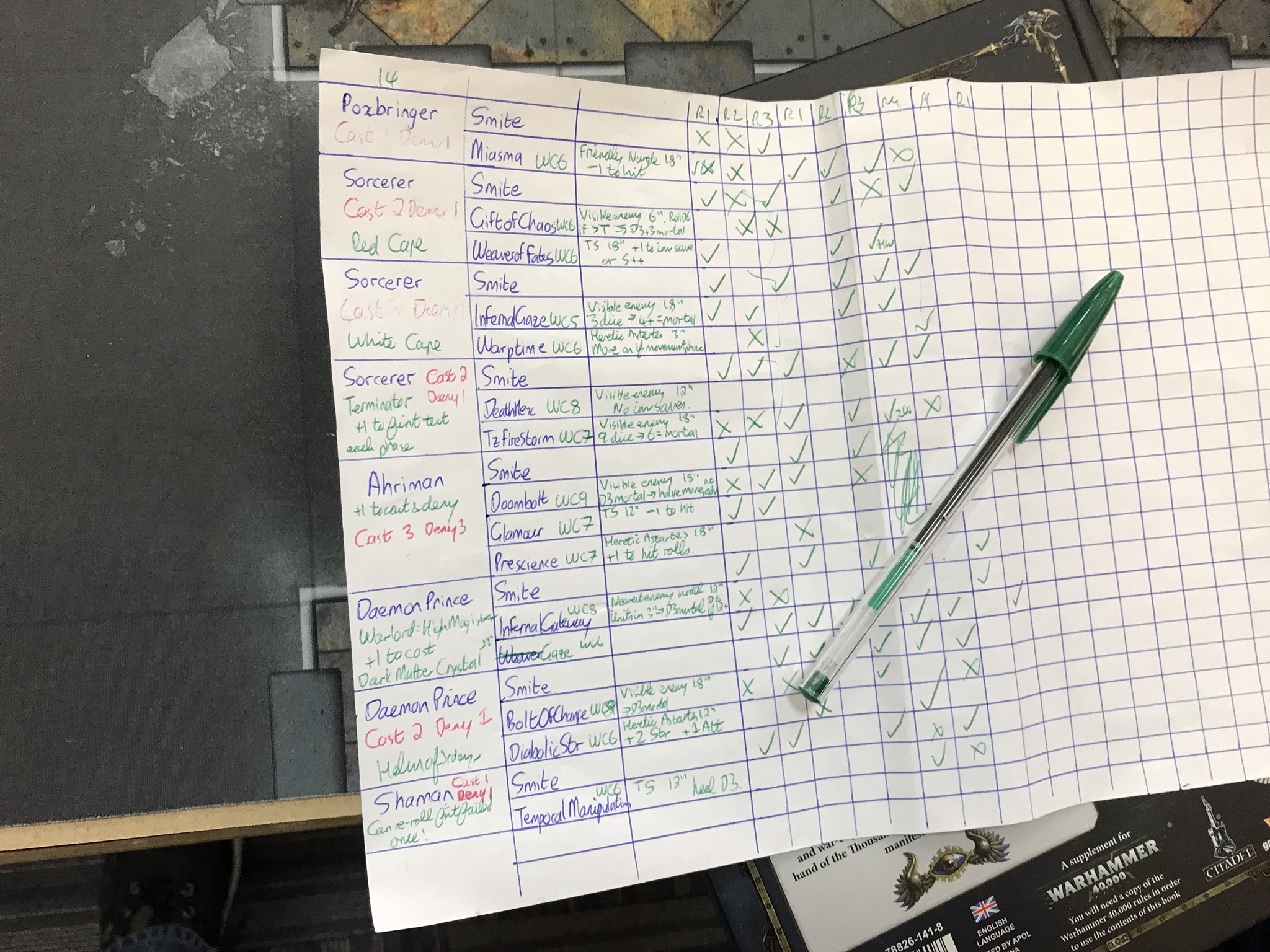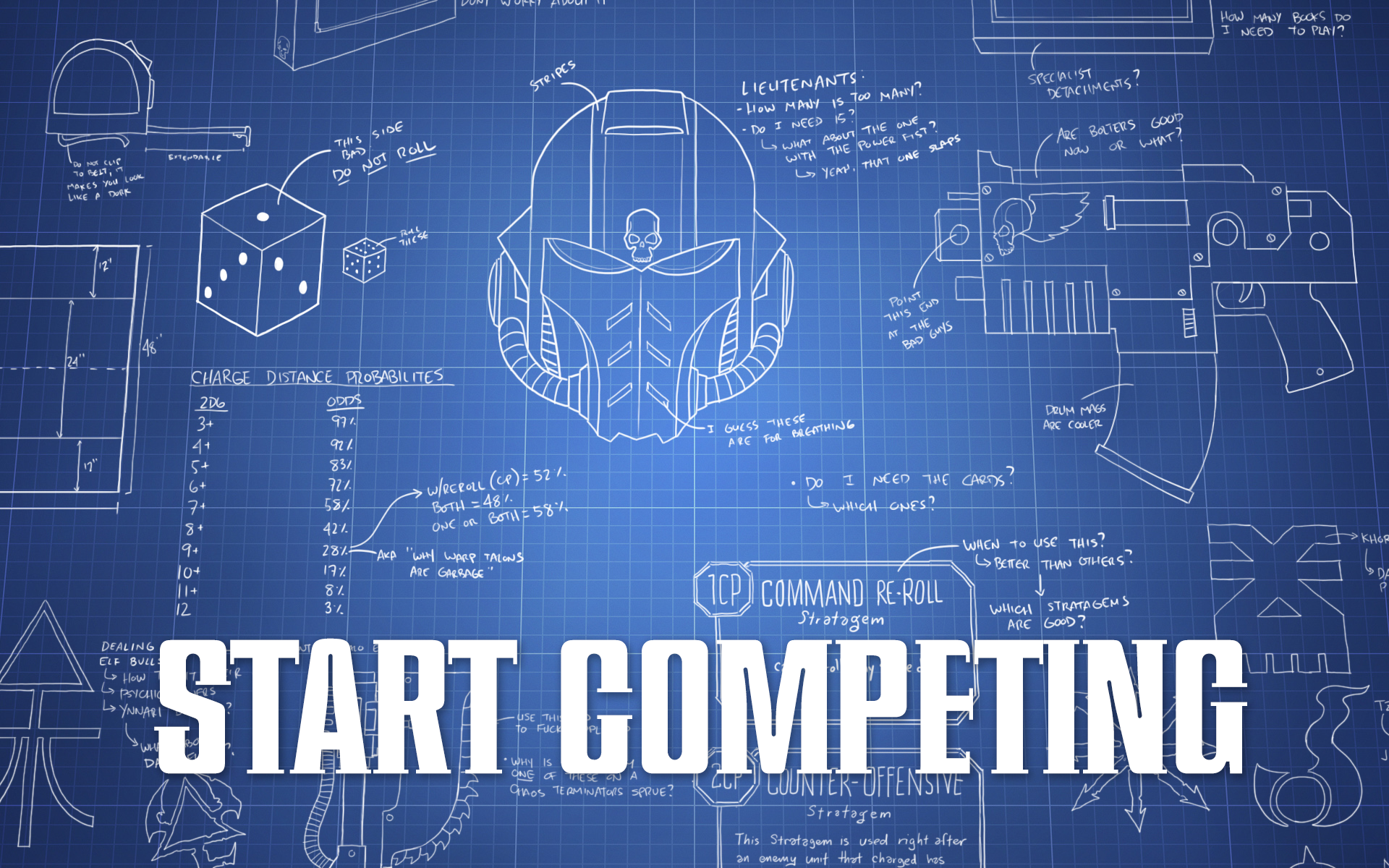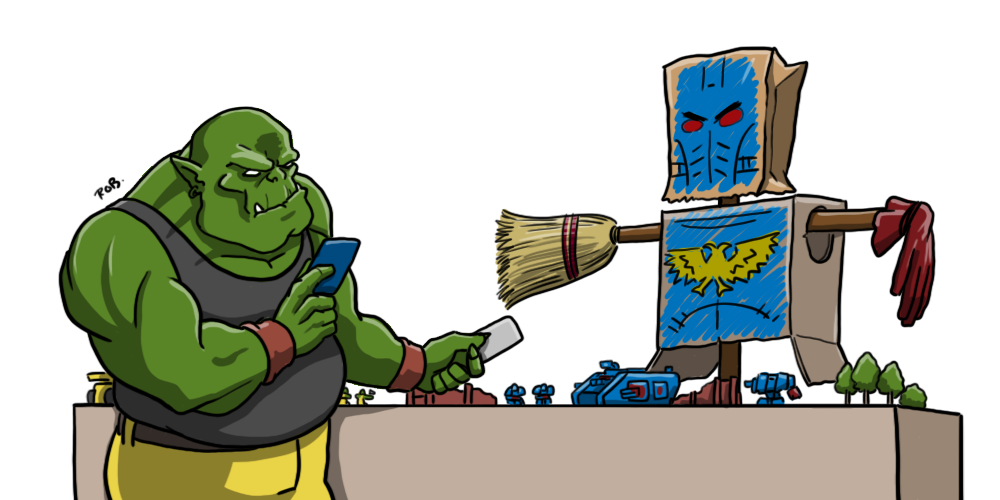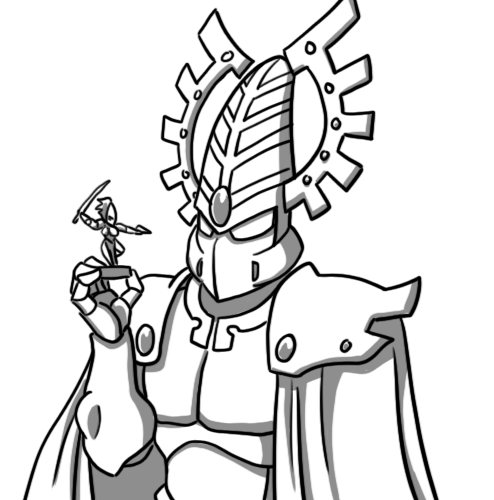Part 3: Learning and Improving
When we first started writing this series, we expected it to be a single article. Then it ran long, so we broke up the parts about play and the meta. Then that section ran long and we decided to move the parts we thought were more useful for players who’ve tried and enjoyed tournaments already, and are now looking to improve, to their own article. We also didn’t want to suggest that new players have to practice a bunch before going to their first tournament — it certainly helps, and we think players should, but it’s by no means required!
So in our third and final Intro to Tournaments article, we’re going to cover how you can internalize all of the principles in our last article, and how to learn from your experiences to improve for future events.
Internalizing Good Play
Going to tournaments, especially large events, can be intimidating. You’re in a new environment, playing several games in a row, against people and armies you may have never played against, within a strict time limit, and with real stakes for losing (as real as the stakes in a toy soldier game can get, anyway). It’s stressful, and in those conditions, it is very easy to forget important things or make unforced errors that can cost you games. It can be even worse when you’ve won a few games, because then the stakes are even higher.
The key to overcoming these challenges is to Internalize Good Play. In other words, you need to make sure that the tenets of good play, like managing your time, sticking to the plan, and making sound decisions, are a natural part of your playstyle. If playing well quickly is just how you play and your army plan is second nature, then when you’re in a tournament you’ll have one less thing to worry about, and you’ll make fewer errors.
Practice, Practice, Practice
The key to internalizing good play is practice. All the theorycrafting and online articles in the world will only get you so far; if you want to make good play second nature, you’ve got to practice. Understanding the meta will help you build a better list and a plan for playing against your opponents, but often you’ll need to actually play with that list to really understand how it works, and likewise for playing against specific opponents.
How to Practice
It’s not enough to practice. How you practice matters. There are a few things you’ll want to do as you practice for a tournament to ensure you’re seeing the most return on your time/effort investment.
- Stick to the Format
Most tournaments will make their rules packets available well in advance of the event. Familiarize yourself with the missions being used (if those are published ahead of time) and, if possible, the terrain layouts on the tables. It’s no good practicing Priority Targets on your set of last edition’s LGT terrain if the event isn’t using that mission and has completely different boards.
- Keep an Eye on Time
You don’t need a stopwatch, but generally keep track of how long you are taking and try to maintain a brisk pace. Your goal should be to keep your turns under an hour and a half in terms of total time. That’s 20-30 minutes for the first turn, then 10-15 minutes for each subsequent turn. If you haven’t played your army much, start by focusing on getting the rules and play right, then work on speeding things up.
- Play Against the Armies You Expect to Face
When you’re setting up your games, try and play games against armies that look like what you expect to face. That may mean asking your friends to make lists a bit different from what they’d normally play, or they may have to proxy some stuff up. Tell them to consider it a personal favor.
- Play Against Several Different Armies
Ideally you won’t just test against a single army or type of opponent. Try and get in several games against different armies. It’ll help you develop your plan, and help you understand how to adjust the plan when you face those opponents later.
- Don’t be afraid to make tweaks, but don’t get too drastic
As you play your practice games, you’ll naturally notice areas you can improve, units you can swap, and changes you can make. Don’t be afraid to make adjustments, but at some point you need to settle on a list to bring, and you’ll need to practice with it. Changing your whole list the night before the event is a great way to spend a weekend learning all the weaknesses of your new list, and wishing you were playing your old one.
If you can internalize good play, you can dramatically cut down on the number of errors you’ll make as a result of being shaky, intimidated, under pressure, or just plain hungover. You’re going to be in a new environment surrounded by new things. Make sure your army isn’t one of them.
How to Improve As You Practice
As you play your practice games, you’ll start to get a feel for your army and how they play. But to really get the most out of those games, you need to do more than just play. You need to think critically about what works, what doesn’t, and what it means for your plan.
- Take Notes
It’s important to make sure you’re not going to immediately forget what happened after the game is over so you can analyze your play. For some people, the most useful way to do that is to take notes as I play. Keeping track of the secondary missions you chose and how successful they were, the CP you used and what you used them on, and major decisions you made and how they panned out can make it much easier to do a postmortem analysis. Taking photos may also help this process, and can help you remember things like deployment. You don’t need to do a total play-by-play or anything here; you just want to make sure you remember the important stuff.
- Refine Your Plan
Good play means having a plan for your army/game and sticking to it. As you look over your notes and consider your games, think about what your latest games mean for the plan. Is it good? Does it need to change?
- Solicit Feedback
If there are areas you aren’t sure about, interactions you’re concerned about, or parts of your list you aren’t 100%, don’t be afraid to solicit feedback, whether in real life or online. Workshop ideas with friends or teammates. Try to prioritize feedback from players with experience if you can, and don’t put up with anyone insulting you.
- Get the Most from Your Playtest Games
To some degree, every game with a list is a practice game, but if you’re playing a game with a buddy that’s explicitly a playtest game, make sure you get the most out of it.
What this can often mean is being a bit more generous with one another about things like takebacks – remembering to do everything correctly is an important skill to develop, but if you make a howling error on turn 2 that effectively ends the game, playing out turns 3-5 is a waste of both of your time. Make a note of the mistake and double, triple promise yourself that it won’t happen again, but then wind things back so that you can learn from realistic situations in the rest of the game as well.
Good practice will help you get the most out of a small number of games, and help ensure that your tournament experiences are more rewarding.
Learning From Your Experience
Hopefully, you’ll have such a great time at your first tournament that you’ll want to go to more events in the future. You’ll likely want to improve on your record in those future events, and doing that means learning from your experiences and improving. Here, the same habits you build around practice games can be applied to tournaments. As you play your games, take notes and photos. You’ll have much less time for this, but jot down what you’re able and try and do this during your opponent’s time where you can. When you have a few moments after the event, review your list and notes and reflect on what choices were right and what could have been improved.
One_Wing’s Note on Writing Tournament Reports
Part of the reason I make the effort to write up all my tournaments as reports on here (aside from entertaining our beloved readers, obviously) is that it’s a fantastic way to make sure I’m learning from every game I play. The very structured format I use, which was originally devised to help people reading it understand what I was thinking, turned out to be really helpful for evaluating my own play was well.
I’m obviously not suggesting that everyone start writing tournament reports (though there aren’t enough good ones on the internet, so please do if you think you’d enjoy it!), but the key steps you can take to get some of the benefit is to, after every game, consider:
- What was your plan going into the game? Did it work? Would you do the same thing again?
- Were there any key moments that really swung the game, and why did they happen? Was it a genius move on your part, or did your opponent pull out a trick you didn’t see coming?
- Did you make any mistakes? It’s important to be really honest with yourself here – once a game is on the books no amount of re-litigating how bad your dice were will change it, so even if you think your luck was dire, try and find anything you did that might have contributed to a loss. I make a concerted effort to do this in my reports – even when the dice were against me, I try to find at least one thing I did wrong or my opponent did well to focus on, because no one learns anything from complaining about rolling all 2s.
TheChirurgeon’s Note: Be sure to think about whether things you did should have worked, too – bad strategies can sometimes work out, and so success shouldn’t be the only factor you use to evaluate your actions! If your plan relied on a 1% chance going off and it did, that didn’t mean it was a good plan, just a fortunate one – though it may also have been the only one depending on the game situation.
I find covering these three steps helps me really dig in to the why of how a game played out, and I hope you find them useful too!
Spend Time on Your Resources

We already went over materials to bring, but don’t be afraid to bring “cheat sheets” and resources that can help you stick to your plan and remember important rules and interactions. Print out easy-to-reference datasheets, make sure you’ve got the cards you need on hand (and not the ones you don’t), and make reminder sheets that you can use to track important turn events. Internalizing good play takes time, and there’s nothing that says you can’t use tools for this.
Go Forth and Kick Ass
Alright, grasshopper — hopefully if you’ve read this far you’ve either already been to your first event and are eager to learn more, or you’re just about to pack up your miniature cases and hit the big leagues for the first time. Keep our advice in mind, make sure you get some good practice in, and soon you should be well on your way to a string of highly rewarding tournament runs. We’re rooting for you!
If there’s anything you think we missed, or anything you want to add, feel free to reach out to us and let us know through contact@goonhammer.com, or drop a comment for us on Facebook, Reddit, or Twitter. We’re always interested in hearing and sharing strategies.




